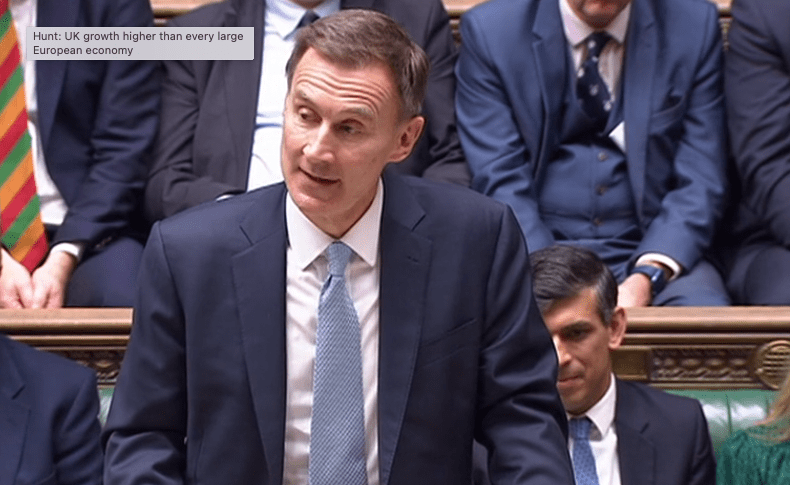Business
Rising benefits and tax cuts are pushing UK borrowing to its highest level in three years

Government borrowing in Britain rose to £20.5 billion in April, the highest level in three years. The increase was driven by a growing benefits bill and lower tax revenues due to cuts in national insurance contributions.
Official figures from the Office for National Statistics (ONS) showed that borrowing exceeded both the £19.3 billion expected by economists and the £19 billion forecast by the Office for Budget Responsibility (OBR). The ONS highlighted that the government spent more than it earned in April, with a significant increase of £2.1 billion in social spending due to an annual inflation-linked top-up at the start of the new financial year.
In addition to rising welfare costs, departmental expenditure increased by £2 billion due to higher operating costs due to inflation. The government’s decision to cut National Insurance rates by two percentage points, which came into effect in April, had a further impact on revenues, cutting National Insurance premiums by £1.5 billion. This reduction was the second within four months.
Chancellor Jeremy Hunt had hinted at the possibility of another national insurance cut this year. However, the International Monetary Fund (IMF) has warned against this move, highlighting the potential costs to public finances. On Tuesday, the IMF suggested that any new government would have to raise taxes or cut spending by around £30 billion to reduce debt over the next five years. Both the Labor and Conservative parties have pledged to stick to the current fiscal rule to reduce the debt ratio during the next parliamentary term.
The ONS reported a debt-to-GDP ratio of 97.9% of gross domestic product (GDP) in April, slightly better than the forecast 98.1%. However, these figures are preliminary and may be revised based on more accurate estimates of tax revenues and government expenditures.
Grant Fitzner, chief economist at the ONS, said: “Although central government spending and revenues were rising this time last year, a big fall in national insurance contributions meant that receipts were not growing as fast as expenditure. Decreases in energy support spending were offset by increases in benefit spending as a result of the annual top-up.”
For the financial year ending March 2024, the total borrowing bill is now estimated at £121.4 billion, exceeding the OBR’s forecast of £114 billion. This overshoot underlines ongoing fiscal challenges as the government copes with increased spending pressures and reduced tax revenues.











